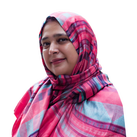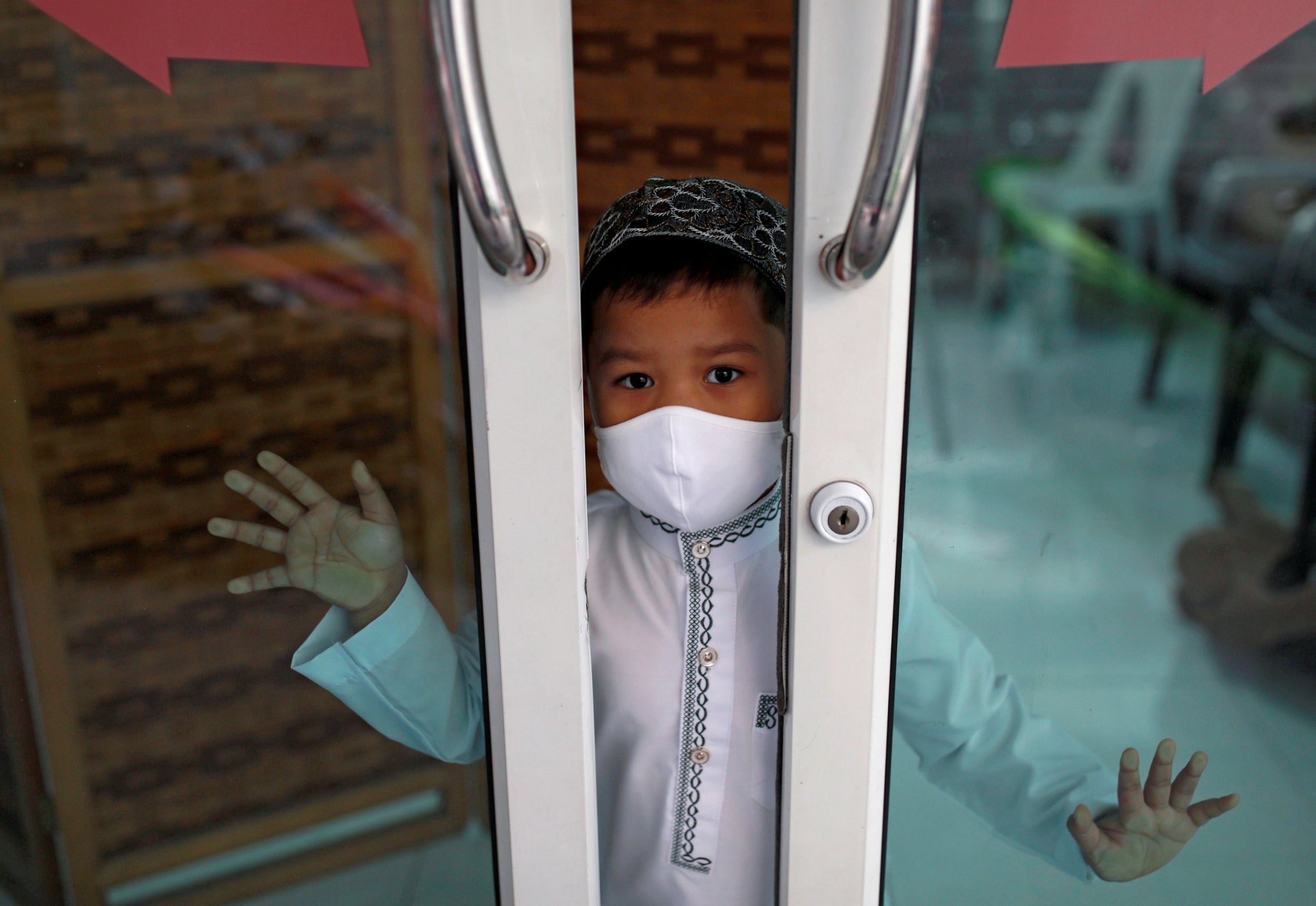When you're a Muslim American mom coordinating Ramadan in Texas during coronavirus, nothing is simple
I’m in the league of mothers who are trying to balance an incredibly difficult load of work that we’d never planned on — while trying to infuse my first-generation American kids with my family's old traditions at the same time


These days, my house in Houston, Texas is more like a zoo. My husband and I, and our two kids, are spending quality time with each other 24/7 and it’s not going too well. Right now, for instance, the kids are screaming about Zoom not working, while I scream back at them to be quiet because I have important things to write. I’m an author of children’s books, and quiet solitude is literally a requirement for the creative juices to flow.
Unfortunately, I have no creative juices left, thanks to the pandemic that plagues us all, if not physically then emotionally. I’m in the league of American mothers who are trying to balance an incredibly difficult load of work that we’d never planned on. Working from home, because deadlines to my publishers are coming up fast. Sharing a little home office with my husband, where our chairs rattle against each other in the most annoying way if one of us tries to shift positions. Teaching algebra and science, and figuring out what to submit for an art competition that the school is still holding even in the midst of all this chaos. Cooking all the time, only to hear my kids complain about why we’re having Pakistani food again? And my God, why are there so many dishes?
And now, there’s Ramadan. Each year, I look forward to Ramadan because it’s a month of peaceful connection with the Almighty. It’s a month that’s sacred to Muslims all over the world, one where we fast every day from dawn to dusk, if we are healthy. As a Muslim American immigrant raising first-generation American kids, I’ve always found Ramadan to be a way to infuse my traditions and values into my kids. We pray together as a family, and then visit the mosque nearby for breaking the fast with our friends. It’s a beautiful month, full of key ideas like peace and reflection and prayer.
Not this year, of course. This year belongs to the coronavirus, and Ramadan is suffering just like every other religious and cultural observance. Although fasting sounds like a solitary exercise, it’s actually quite the opposite. We tend to fast individually, but in a community environment as much as possible. In a normal year, I’d take comfort in this community. As a child, I’d sit sleepy-eyed at the “suhoor” table with my mother as she ate. I wasn’t allowed to fast, but I could still eat with her, which was a wonderful treat. In the evening, my grandmother would call us to the “iftar” table to break the fast together. The delicious Pakistani snacks — samosa and chaat and dahi bara — are still a vivid memory in my mind, not only because of their flavor, but because it meant the whole family sat together to eat.
Now, as an adult, I’ve tried to bring many of those traditions into my immigrant family. I remember recreating — mostly with success — many of my grandmother’s recipes. I remember holding my baby son in my lap while eating suhoor in the pre-dawn hour more than thirteen years ago, and my daughter completing her first reading of the Quran during Ramadan at the age of seven. I remember the last several years when Ramadan fell during summer vacation, and we spent all our evenings at the mosque.
They’re not a solemn affair, these evenings. We pray together as a community of worshippers, but we also eat and laugh and chat together. My kids play with their friends in the playground and the basketball court. A couple of years ago, on the 4th of July, they all huddled in the mosque’s back yard and lit fireworks — a beautiful mixture of religion and country. The spiritual fulfilment of these days is found not only through prayer, but also through friendship and love.

Coronavirus has destroyed those meetings, but it hasn’t killed the love. It took me a while to raise my head from all the chaos of homeschooling and try to figure out how to make this unique Ramadan even more special. It wasn’t only for my own peace of mind. My kids needed some normalcy in this suddenly upside-down, scary world. I convinced my daughter, the artistic one, to decorate the mantlepiece with origami stars and painted letters. I encouraged my now-teenage son to fast with us a few days, just to get in practice for the real thing. I cooked a lot and froze all of it, in anticipation of those days when I didn’t have energy to make iftar meals.
Most importantly, I’ve taken time for myself. Yes, the screaming at Zoom and struggling with science experiments is still there, but I’m working on the rest of it. Apart from some time-sensitive assignments, I’m not writing as much. I’m trying to slow down, calm down, breathe deeper and longer than I have in decades.
This pandemic has forced me to restock, turn to God, and worship in a way I’d forgotten was possible. Maybe it’s the yearning for a simpler time, or maybe it’s the insane hope that my prayers will heal the world and defeat the virus. Sounds like an impossible goal, but I believe that’s what Ramadan is all about.
Saadia Faruqi is a Pakistani-American interfaith activist, and author of the popular Yasmin series for children. Follow her on Twitter and Instagram @saadiafaruqi
Join our commenting forum
Join thought-provoking conversations, follow other Independent readers and see their replies
Comments
Bookmark popover
Removed from bookmarks